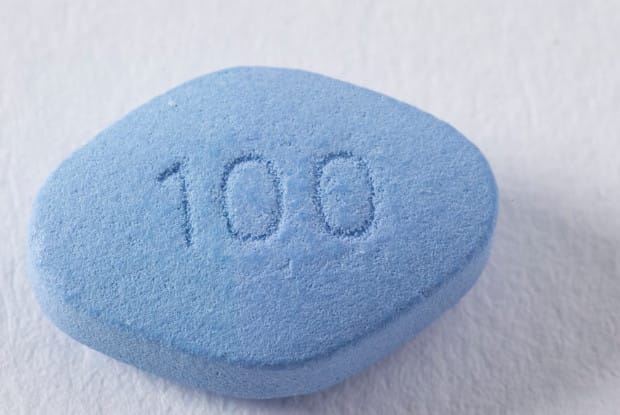Table of Contents
I. Erectile Dysfunction Overview
II. Symptoms of Erectile Dysfunction
III. Causes of Erectile Dysfunction
IV. Erectile Dysfunction Treatment Methods
V. Diagnosing Erectile Dysfunction
Erectile Dysfunction Overview
Erectile dysfunction (ED) is a sexual dysfunction condition that can affect men of any age. Occasional erection troubles do not indicate ED. Instead, erectile dysfunction is characterized by the persistent inability to achieve and maintain an erection long enough for sexual intercourse. Depending on the severity, erectile dysfunction may be reversed or managed with oral therapies like phosphodiesterase 5 (PDE5) inhibitors. A healthy diet and regular physical activity are also essential for preventing this condition. A well-balanced diet for ED can improve symptoms.
While sexual dysfunction may be an embarrassing topic to discuss, your doctor will address your ED symptoms professionally and discretely. At least 12 million men in the U.S are affected by ED, so you are not alone. [1] Erectile dysfunction is often caused by an underlying health condition such as high blood pressure or atherosclerosis. Seeing your doctor is the most important step because a proper diagnosis can get you on the right treatment plan right away. Symptoms of erectile dysfunction include the persistent inability to achieve and maintain an erection and a decrease in sexual desire (libido). Certain psychological symptoms may also accompany erectile dysfunction, including low self-esteem, depression, and anxiety. A reduced sexual ability can impact a man’s confidence, which can interfere with his personal life. So it is important to learn how to deal with erectile dysfunction in a relationship. The good news is that these symptoms may be improved with the help of PDE5 inhibitors like the sildenafil pill (Viagra) and brand-name or generic Cialis. Erectile dysfunction may be caused by a combination of physical and psychological issues, so it is important to learn what causes erectile dysfunction. Certain underlying conditions increase the risk of developing ED, including: Your treatment plan for ED will consist of two parts: First, your doctor will prescribe a treatment to address the root problem. For example, you may be given angiotensin-converting enzyme (ACE) inhibitors or beta-blockers to lower blood pressure if you have hypertension. If you are overweight, your doctor may give you a diet and workout plan to help you achieve a healthier lifestyle. The second part of your ED treatment will typically help you achieve erections in the meantime. PDE5 inhibitors are often the first choice because they are effective, non-invasive (taken orally), and convenient. PDE5 inhibitors like Viagra and Cialis block enzymes, that when blocked, allow more blood flow to help aid an erection. So it can be said that this class of medication also works as a vasodilator, widening the blood vessels and promoting blood flow to the penis. PDE5 inhibitors come in different forms and dosage strengths, giving you the option of daily or as-needed dosing. Lower strengths taken daily ensure a consistent concentration in your bloodstream, so you are ready for sexual activity at any time. Higher strengths can be taken (at least) 30 minutes before sex and are beneficial to men who do not prefer the daily route. Erectile dysfunction is diagnosed with a physical examination. Your doctor will carefully check the penis and testicles and inform you of any nervous system problems. If you have a chronic condition like diabetes, or if your doctor believes an underlying disease is responsible, they may run blood and urine tests. These tests are useful for determining if you have heart disease, low testosterone, or diabetes. If you are in good physical health, your ED symptoms may be caused by psychological factors. To screen for mental health disorders, your doctor may ask you (or have you fill out) a series of questions. For a more detailed diagnosis, your doctor may refer you to a psychiatrist. If you are experiencing difficulties with achieving or maintaining an erection, the first step to getting better is talking to your doctor. From there, your doctor can prescribe Viagra, Cialis, or another ED medication. Talk to your doctor and take control of your sexual health today. The content in this article is intended for informational purposes only. This website does not provide medical advice. In all circumstances, you should always seek the advice of your physician and/or other qualified health professionals(s) for drug, medical condition, or treatment advice. The content provided on this website is not a substitute for professional medical advice, diagnosis, or treatment.
Symptoms of Erectile Dysfunction
Causes of Erectile Dysfunction

Erectile Dysfunction Treatment Methods

Diagnosing Erectile Dysfunction

